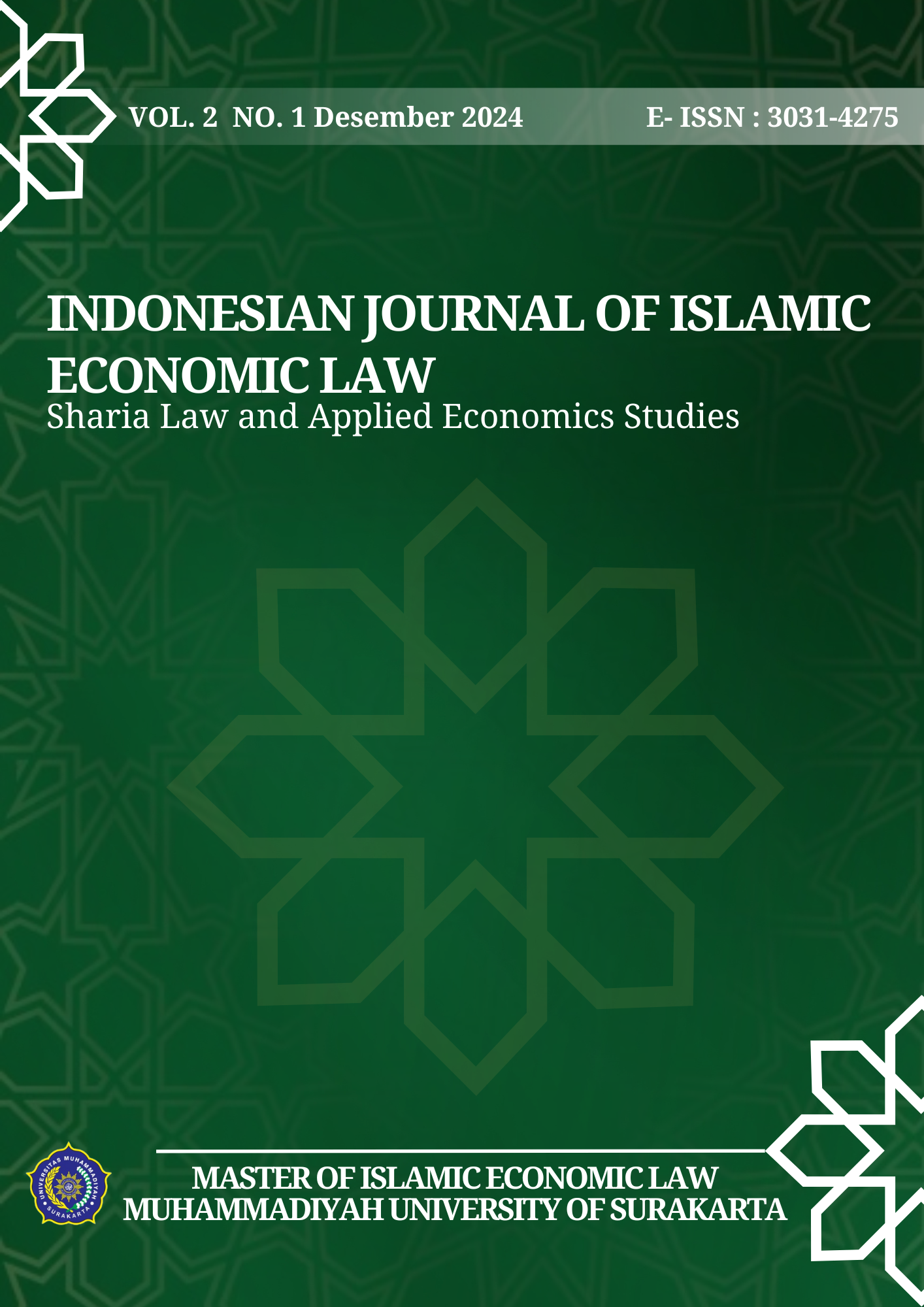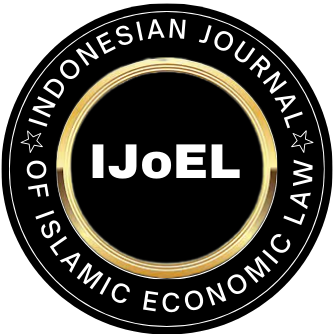Islamic Jurisprudence on Women Reproductive Health (Indonesian Review)
DOI:
https://doi.org/10.23917/ijoel.v2i1.6957Keywords:
Islamic Jurisprudence, Reproductive Health, Women's RightsAbstract
This paper explores the role of Islamic jurisprudence (fiqh) in addressing women's reproductive health issues in Indonesia, particularly in emergency contexts where rising sexual violence is prevalent. Islamic jurisprudence, as part of the turats (heritage), provides a moral and legal framework that can bridge traditional Islamic principles with contemporary reproductive health challenges. The formulation of women's reproductive health jurisprudence in Islam must be grounded in the fundamental values of benefit (maṣlaḥah), justice, and freedom, which are in alignment with the principles of maqāṣid al-sharī’ah, particularly hifẓ al-nafs (protecting the soul) and hifẓ al-nasl (protecting offspring). Women's reproductive health encompasses not only the prevention of disease but also the safeguarding of reproductive rights in accordance with Islamic values, including the right of women to make medical decisions regarding their health. Consequently, access to safe and quality reproductive health services must be regarded as harmful practices such as child marriage, female genital mutilation/cutting (FGM/C), and restrictions on contraception that endanger the mother's health. It is imperative to recognize that all practices detrimental to women's reproductive health are considered haram, as they contradict the principle of benefit. To address this critical issue, there is a necessity to reformulate fiqh to align more closely with the contemporary needs of women. This reformulation must affirm women's rights to their reproductive health and ensure the development of inclusive health policies based on maqāṣid al-sharī’ah. These policies must protect women's health from harmful and discriminatory practices. This paper underscores the pressing need to integrate Islamic legal principles to safeguard women's reproductive rights, aligning Islamic jurisprudence with contemporary reproductive health needs, particularly during times of crisis, to achieve a more comprehensive approach to safeguarding women's health and dignity
Downloads
References
Almaeen, Mona. “Motherhood and Memory in Najwa Bin Shatwan’s The Slave Yards.” Journal of Literary Studies 40 (November 7, 2024). https://doi.org/10.25159/1753-5387/17667.
Beddu, Muhammad Juni, Novi Yanti, Noviyanti Noviyanti, Neri Aslina, and Normadiah Daud. “Caesarean Section in the Perspective of Family, Health, and Islamic Law.” Al-Istinbath: Jurnal Hukum Islam 9, no. 1 (May 31, 2024): 359. https://doi.org/10.29240/jhi.v9i1.8373.
Blikhar, M.M., І.І. Komarnytska, Y.S. Oliinyk, I.I. Shulhan, and M.M. Huchko. “The Right to Sexual and Reproductive Health of Adolescents: Problems of Achieving the Goals of Sustainable Development.” REPRODUCTIVE ENDOCRINOLOGY, no. 73 (October 18, 2024): 14–20. https://doi.org/10.18370/2309-4117.2024.73.14-20.
Chin, A. H. B., Q. Al-Balas, M. F. Ahmad, N. Alsomali, and M. Ghaly. “Islamic Perspectives on Polygenic Testing and Selection of IVF Embryos (PGT-P) for Optimal Intelligence and Other Non–Disease-Related Socially Desirable Traits.” Journal of Bioethical Inquiry 21, no. 3 (September 4, 2024): 441–48. https://doi.org/10.1007/s11673-023-10293-0.
Fatimatus Zahro’ Jihan Fitri, Alimatul Qibtiyah, and Ro’fah. “Child Marriage: Taboo, Religion, and Women in Symbolic Violence.” HIKMATUNA: Journal for Integrative Islamic Studies 8, no. 2 (2023). https://doi.org/10.28918/hikmatuna.v8i2.6028.
Görgülü, Ülfet, and Fatma Zehra Özaslan. “Üç Ebeveynli Bebek: Mitokondri Değiştirme Yönteminin Fıkhi Açıdan İncelenmesi.” Hitit İlahiyat Dergisi 23, no. 1 (June 30, 2024): 336–52. https://doi.org/10.14395/hid.1433246.
Humaira, Aida, Muh. Fudhail Rahman, Andi Yaqub, A. Zamakhsyari Baharuddin, and Nurul Adhha. “Betawi Ulama’s Perception of The XXI Century Against Contraception Law Controversy in Population Control.” Samarah: Jurnal Hukum Keluarga Dan Hukum Islam 6, no. 2 (December 31, 2022): 934. https://doi.org/10.22373/sjhk.v6i2.12936.
Insani, Nur, Zumiyati Sanu Ibrahim, Suud Sarim Karimullah, Yavuz Gönan, and Sulastri Sulastri. “Empowering Muslim Women: Bridging Islamic Law and Human Rights with Islamic Economics.” De Jure: Jurnal Hukum Dan Syar’iah 16, no. 1 (June 25, 2024): 88–117. https://doi.org/10.18860/j-fsh.v16i1.26159.
Isman, I, and Ahmad Zainul Muttaqin. “Innovative Legal Modeling for Interdisciplinary Studies on Law and Economic Behavior.” Indonesian Journal of Islamic Economic Law 1, no. 1 (2023): 60–71. https://doi.org/10.23917/ijoel.v1i1.3437.
Isroqunnajah, Agus Iqbal Hawabi, and Umdatul Khoirot. “Legal Capacity and Legal Authority of Adult Age in Indonesia: Medical, Psychological and Islamic Law Perspectives.” Samarah 8, no. 1 (2024). https://doi.org/10.22373/sjhk.v8i1.19834.
Kementrian Kesehatan. Profil Kesehatan Indonesia 2023. Jakarta: Kementerian Kesehatan RI, 2024.
Kementrian Pemberdayaan Perempuan dan Perlindungan Anak. Kondisi Perempuan Indonesia 2024. Jakarta: Kemen-PPA, 2024.
Komisi Nasional Anti Kekerasan terhadap Perempuan. Catahu 2023. Jakarta: Komnas Perempuan, 2024.
Ma’rifah, Atun Raudotul, Yati Afiyanti, Wisnu Djatmiko, Ida Ruwaida, and Ariesta Milanti. “Gender Role Conflicts Experienced by Indonesian Women with Gynecological Cancer: A Phenomenological Study.” Belitung Nursing Journal 10, no. 1 (February 28, 2024): 78–86. https://doi.org/10.33546/bnj.3064.
Rasyid, Arbanur, Jarudin Jarudin, Idris Saleh, and Rayendriani Fahmei Lubis. “Dynamics of Childless Marriage Through the Lens of Maqasid Al-Shari’a.” Jurnal Ilmiah Peuradeun 12, no. 2 (May 30, 2024): 763. https://doi.org/10.26811/peuradeun.v12i2.1182.
Risdayani, Risdayani, Isman Isman, Syamsul Hidayat, and Yusuf Rohmat Yanuri. “Maqāṣid Al-Syarī’ah Analysis of the Implementation of Food Social Assistance on Multidimensional Welfare in Indonesia (2020-2023).” AL-IKTISAB: Journal of Islamic Economic Law 8, no. 2 (November 5, 2024): 139–56. https://doi.org/10.21111/aliktisab.v8i2.12972.
Setyawan, Edy, Muhammad Chairul Huda, Afif Muamar, Didi Sukardi, and Muhammad Feby Ridho Pangestu. “Legal Age for Marriage: SDGs and Maslahah Perspectives in Legal Policy Change in Indonesia.” Al-Manahij: Jurnal Kajian Hukum Islam, September 22, 2023, 183–98. https://doi.org/10.24090/mnh.v17i2.9506.
Smith, Bianca J., and Atun Wardatun. “Domestic Violence and Islamic Spirituality in Lombok, Indonesia: Women’s Use of Sufi Approaches to Suffering.” Contemporary Islam 16, no. 2–3 (2022). https://doi.org/10.1007/s11562-022-00495-5.
Utsany, Royan, Afrizal Tw, and Khamim Khamim. “Women’s Rights and Gender Equality: An Analysis of Jasser Auda’s Thoughts and His Contribution to Renewal of Islamic Family Law in Indonesia.” JIL: Journal of Islamic Law 3, no. 1 (February 7, 2022): 54–73. https://doi.org/10.24260/jil.v3i1.530.
Wahid, Soleh Hasan. “Exploring the Intersection of Islam and Digital Technology: A Bibliometric Analysis.” Social Sciences & Humanities Open 10 (2024): 101085. https://doi.org/10.1016/j.ssaho.2024.101085.
Zhussipbek, Galym, Assyltay Tasbolat, and Zhanar Nagayeva. “Interdisciplinary Approach to Overcoming the Persistence of Patriarchal Islamic Interpretations: Gender Equality, the Development of Empathy and Children’s Rights, and Insights from the Reformist Eurasian Scholars of Early Twentieth Century.” Open Theology 10, no. 1 (January 22, 2024). https://doi.org/10.1515/opth-2022-0243.
Downloads
Submitted
Accepted
Published
How to Cite
Issue
Section
License
Copyright (c) 2025 Alimatul Qibtiyah, Wika Andeska, Azka Salsabila

This work is licensed under a Creative Commons Attribution 4.0 International License.










